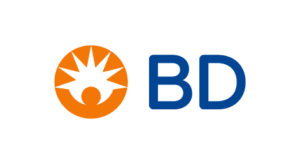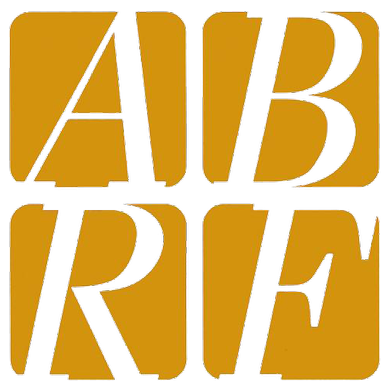2020 Satellite Workshops
Multiple Satellite Workshops were offered at the ABRF 2020 Annual Meeting. All Satellite Workshops were held on Saturday, February 29, 2020.
SW1: Essential Principles for Core Scientists: Enabling rigorous experimental design, reproducible results and effective data visualization. (Full Day)
- This workshop consists of two half day modules:
The morning plenary workshop will focus on essential biostatistics principals, and provide new or refreshed introduction to the essentials of good experimental design and fancy visualization methods, using accessible presentation techniques that strip away jargon, and communicate the concepts using pictures to increase understanding. Be prepared for each concept to be Clearly Explained!!!! - The afternoon will be comprised of breakout sessions to enable a deeper dive into experimental design and rigor in data collection in discipline specific manner.
- Flow Cytometry Research Group breakout session will cover experimental design topics such as appropriate controls, antibody validation, and planning for high-dimensional data acquisition and analysis. Rigor in data collection, as an extension of the first topic, will discuss requirements for data integrity including instrument standardization and post-acquisition data processing for high dimensional analysis.
- Sustainable Laboratory: connecting sustainability best practices with principles for rigor & reproducibility session will cover: benefits that efforts for laboratory sustainability and rigor & reproducibility can bring to each other; the important role that cores and shared research resources play in both sustainability and rigor & reproducibility; changes in systems at research institutions that can promote both sustainability and rigor & reproducibility in research environments; techniques and best practices employed by laboratory sustainability programs which can advance and enhance rigor & reproducibility efforts; and considerations for lab sustainability programs to avoid negatively impacting rigor & reproducibility.
Speakers:
- Morning Plenary Session – Essential Biostatistics Principles:
Josh Starmer PhD, Assistant Professor, Genetics, University of North Carolina School of Medicine
- Afternoon concurrent breakout session – Flow Cytometry and Best Practices for Experimental Design:
Mehrnoosh Abshari, MS, Head, Combined Technical Research Core, NIH-National Institute of Dental and Craniofacial Research
Dave Adams, MS Ed, Managing Director, Biomedical Research Core Facilities Flow Cytometry Core, University of Michigan Medical School
Dagna Sheerar, Facility Manager, University of Wisconsin Carbone Cancer Center Flow Cytometry Laboratory
Sherry Thornton, PhD, Director, Cincinnati Children’s Research Flow Cytometry Core, Associate Professor, University of Cincinnati Department of Pediatrics
- Afternoon concurrent breakout session – Sustainability and Rigor & Reproducibility:
Kathryn A. Ramirez-Aguilar, Ph.D., CU Green Labs Program Manager, Environmental Center, University of Colorado Boulder
Thank you to our Sponsors – Zymo (Giga) & Promega (Kilo)!
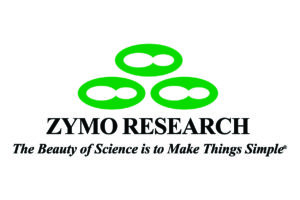 11:30 am – Zymo Research Presentation: Speaker – Chris Mason, Weill Cornell Medicine
11:30 am – Zymo Research Presentation: Speaker – Chris Mason, Weill Cornell Medicine
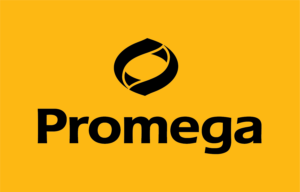
SW3: Business Skills Basics for Core Facilities (Full Day)
Core facilities provide instrumentation and services to a wide range of investigators and institutions. The seemingly straightforward fee-for-service model used in most cores is in reality a sophisticated integration of science and business. Core Facilities are born out of scientific need but they are also driven by compliance and uniform guidance set forth by the federal government. Even though these two entities work in tandem, there often is a gap in understanding the relationship between science and business by the scientists and administrators of core facilities.
Business Skills for Core Facility Directors, Managers and Administrators, will provide a hands-on approach in addressing the business side of operating a core facility. Beginning with an overview of the pieces that make up a core, the program will then proceed with the manner in which science and business work together to operate efficiently. This will include recognizing the value of your customer, how to use information from that relationship in the evaluation of the performance of a core, and how that information can be effective in defining how a core is managed to its maximum potential.
The sessions are designed to be highly interactive. They will cover developing the mission statement, creation of a business plan including exercises in budget development, review of policies and procedures established by the OMB, purchase and lease agreements of fixed assets and compliance issues through actual audit findings. During the workshop, we will also explore core marketing and aspects of customer relations that are crucial in establishing a successful service. The intent is to provide a comprehensive understanding of the relationship of the science, the customer and the business side of operating a core.
The Business Skills Workshop through instruction and exercises will provide attendees with the tools to better communicate and better understand the need and the requirements of core facilities best business practices, thus, creating a relationship of cooperation between the scientists and administrators. We also will encourage participants to network with their ABRF colleagues to explore further the commonalities and uniqueness of the various business components that are required for an efficient operation of a core facility.
Thank you to our Mega Sponsors – Agilent, Coris Life Sciences Monitoring & Stratocore!
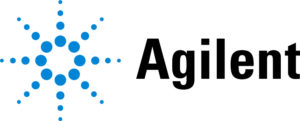


SW4a: Single Cell RNA-Seq and Visualization Using the Galaxy Workbench (Half-Day – 8:00 am – 12:00 pm)
Due to technological advances, single cell RNA-seq (scRNA-seq) analysis has emerged as the new frontier of biomedical research. As scRNA-seq technology evolves and generates increasingly complex data, the need for scalable, flexible, and accessible analysis options remains critical to researchers. The Galaxy workbench (galaxyproject.org) offers a solution. Galaxy has been used for genomic data analysis for over a decade and includes many tools required for scRNA-seq analysis – offering a multitude of analysis options.
8 AM: Welcome & Introduction
8:15 AM: Introduction to Galaxy framework
9:15 AM: Introduction to scRNA-Seq Analysis
10 AM: Refreshment Break
10:30 AM: Hands on training analyzing scRNA-Seq data
12 Noon: Lunch Break
This workshop will introduce the Galaxy workbench with guided exercises to familiarize participants with the diverse set of available tools, data management features, collaborative infrastructure, and workflow generation/execution. Participants will then be introduced to scRNA-seq assay technology, analysis and visualization strategies, and examples of scRNA-seq applications. Using guided hands-on exercises, attendees will a) process 10x Genomics scRNA-seq data using workflows to achieve count matrices from raw barcoded reads using workflows in Galaxy; b) visualize and interact with processed scRNA-seq data using interactive tools in Galaxy. The overall goal of this workshop is to introduce core facility managers and technicians to the Galaxy workbench as an analysis and collaborative platform.
SW4b: Galaxy Platform for Functional Characteristics of Microbiomes (Half-Day – 1:00 – 4:00 pm)
Functional microbiome analysis which estimates the functional groups expressed by microbial community, enables researchers to look beyond taxonomic composition and correlation with the condition under study. Using microbial community RNASeq data and subsequent metatranscriptomics workflows to elucidate the functional complement of the microbiome is gaining interest in the field. The training workshop will introduce researchers to the basic concepts and tools from the published ASaiM workflow (Batut et al, GigaScience (2018), 7 (6), http://dx.doi.org/10.1093/gigascience/giy057). Attendees will also be able to run workflows on small test datasets. Lastly, workshop trainers will update attendees on the latest developments in Galaxy tools and workflows for functional microbiome and multi-omics analysis.
1 PM: Introduction to functional microbiome analysis.
1:30 PM: Metatranscriptomics analysis using Galaxy framework
3:30 PM: Resources available for microbiome analysis and Q&A.
4:00 PM: SW4 Concludes.
Thank you to our SW4 Kilo Sponsors – Illumina, SCIEX, SeqOnce & Thermo Fisher Scientific!
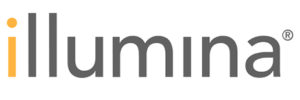
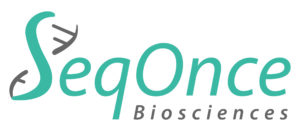
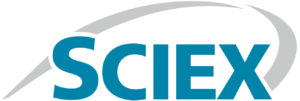
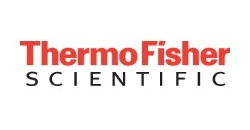
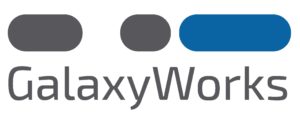


SW5: Taking flight with DISC: Leveraging Personality Styles to Improve Workplace Productivity, Teamwork and Communications (Half Day 12:00 – 4:00 pm)
The Taking Flight with DISC workshop offers a refreshing, reimagined approach to traditional personality styles workshops. As core service providers, researchers, administrators, and vendor partners, our success depends on the ability to read others and adapt to meet the needs of our stakeholders and customers. This workshop is built around four key concepts: self- awareness, social awareness, flexibility and culture. It teaches the DISC styles (Dominance, Influence, Steadiness, and Conscientiousness) so individuals can develop new ways of treating others while being true to themselves. Participants will discover how they unconsciously impose their style on others and sometimes even try to change the people around them because after all, “my way is the right way.” The fun exercises and interactive discussions will help attendees understand the needs, tendencies, motivators and fears of the people with whom they live and work. The program will help participants channel that awareness into action by teaching the skills to flexibly adapt our natural behaviors to others, by anticipating their needs and displaying the right behavior at the right time. Participants will also learn how to apply the four styles to improving individual work team dynamics and organizational culture.
Speakers:
- Laura Lewis-Tuffin, Mayo Clinic
- Lisa MacDowell, Children’s Hospital of Philadelphia
- Scott Switalski, Children’s Hospital of Philadelphia
Thank you to our Kilo Sponsors – BD BioSciences & Illumina!
